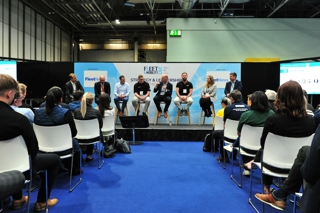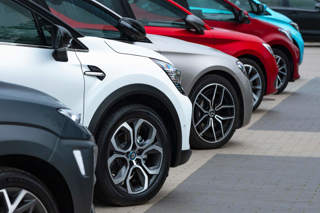Rising costs, economic uncertainties and decarbonisation are the key areas of concern for fleets across Europe, according to a new survey of 850 fleet managers.
Continental commissioned the survey with fleet managers from the UK, Germany, France and USA to provide a litmus test on sentiment across different major global markets.
Nearly three-quarters (72%) of fleet managers surveyed recognise a need for substantial changes within their fleets to meet current industry challenges.
Key challenges identified by respondents include rising costs (76%), economic uncertainties due to crises (46%), and the pressure to reduce CO₂ emissions (40%).
Clarisa Doval, Continental head of digital solutions, said: “Survey results highlight that cost pressure is the greatest challenge for fleet operators.
“Low margins, rising costs, and stricter emissions standards are reducing investment capacity, while wage developments and labor shortages add further strain.”
Over half (56%) of all surveyed fleet managers worry they will lose competitiveness within five years if they fail to adapt to these challenges.
Readiness to invest and innovate
To ensure fleets are prepared for the future, openness to change and the adoption of new technologies will be essential.
Globally, nearly 25% of survey respondents identify as early adopters, actively seeking and implementing innovations at an early stage.
About 44% are pragmatists, adopting new technologies only once they are well-established in the market, while approximately 32% consider themselves laggards, implementing modern technologies only after a delay or not at all.
The primary barriers to adopting new technologies, as reported by respondents, include high costs (63%), unclear return on investment (ROI) (29%), and the lack of a clear strategy (28%).
Key factors that support technology adoption include ease of implementation (56%), user-friendliness (44%) and compatibility with existing systems (39%).
USA as a leader in technology adoption
Data shows that US fleet managers are generally more open to transformation and new technology adoption.
In the US, 63% of respondents identify as early adopters, compared to an average of only around 20% in European markets.
Engagement in the US is especially strong in digital tyre management, with 62% having already invested or planning to do so soon – versus only about 19% in Europe.
E-mobility and digitalisation
Electric mobility is considered a key future technology across industries: 41% of respondents have already invested or are in the process of implementing it, with the figure particularly high in Germany at 50%.
Across all survey participants, another 24% plan to invest in electric mobility within the next one to two years.
Fleet management software is also gaining prominence: 34% of respondents worldwide have already invested or are currently building this capability, with the US leading at 67%.
Other technologies on the horizon include advanced driver-assistance systems (ADAS), which are already part of the strategy for 27% of managers.
Currently, artificial intelligence (AI) and autonomous driving are lower priorities, with only 17% and 11% of managers investing in these areas, respectively.
Cost efficiency, safety and sustainability as primary goals
Companies have clear objectives in modernizing their fleets: cost reduction is the top priority for 65% of respondents, followed by enhancing safety for drivers and other road users (44%) and improving sustainability through emissions reduction (43%).
Reliability and minimizing downtime (41%) are also key, as is compliance with regulatory requirements (35%).
- The full Continental study results are summarised in the free report "The Future of Fleets".























Login to comment
Comments
No comments have been made yet.